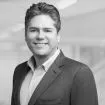- in European Union
- with readers working within the Accounting & Consultancy, Media & Information and Retail & Leisure industries
- within Litigation and Mediation & Arbitration topic(s)
In Kyocera Senco Industrial Tools Inc. v. International Trade Commission, the Federal Circuit held that an expert must meet the definition of a "person of ordinary skill in the art" of the asserted patents in order to opine on infringement, among other issues. This new bright-line test and the underlying rationale, however, raised several new questions regarding expert admissibility. See "Federal Circuit: Narrow Definition of Skill in the Art Dooms Expert's Testimony" and "Grappling With A Bright-Line Patent Expert Admissibility Test." The Federal Circuit recently addressed one of those questions, namely whether an expert must have acquired the requisite level of skill as of the time of the invention or whether it is sufficient for an expert to acquire that knowledge at a later date.
This case involved technology related to orthopedic imaging systems. At the district court, the jury was instructed that a person of ordinary skill in the art would have a bachelor's degree in electrical or computer engineering with 3 to 5 years working in a diagnostic imaging environment. While the patent owner's expert met this definition at the time of trial, the defendant argued in its Rule 50(a) motion that the expert's testimony should be disregarded because he did not acquire the requisite experience until nearly 10 years after the time of the invention. The jury ultimately returned a verdict of infringement. Following trial, the defendant renewed its argument regarding patent owner's expert in its Rule 50(b) motion, which the district court denied.
On appeal, the defendant argued that the jury's verdict could not be supported by the expert's testimony because the expert was not a person of ordinary skill at the time of the invention. Because the patent owner's expert did not become a person of ordinary skill until 8 to 10 years after the time of the invention, the defendant contended he was not qualified to offer expert testimony on issues such as infringement, which Kyocera held must be determined "from the vantage point" of an ordinarily skilled artisan.
The Federal Circuit affirmed the district court's holding and rejected the defendant's attempt to add a timing requirement to the minimum qualifications necessary to offer expert testimony from the perspective of a person of ordinary skill. Specifically, the Court clarified that Kyocera did not create or even consider a timing requirement. Instead, the proper question for expert qualification under Kyocera is whether the witness qualified as a person of ordinary skill in the art "at any time." While the timing of an expert's qualifications may be relevant during cross examination to undermine the witness's credibility, experts who acquire the requisite qualifications after the invention can nevertheless develop an understanding of what a person of ordinary skill knew at the time of the invention.
Practice Tip: While the Federal Circuit put forth a bright-line patent expert admissibility test in Kyocera, certain applications of the test initially remained unclear, including whether an expert needed to be a person of ordinary skill as of the date of the invention. With new clarification that experts can meet the requisite level of skill at any time, parties gain some additional confidence in navigating expert qualification post-Kyocera. Following the Federal Circuit's guidance, attention should still be given to the timing of the expert's acquired skill and how a subsequently skilled expert gained the perspective of a person of ordinary skill at the time of the invention, as such timing may nevertheless be used to both establish and undermine credibility. As the Federal Circuit notes, "an expert who later acquires the requisite knowledge could avoid such potential damage to her credibility by explaining to the judge and jury how she gained the perspective of a person of ordinary skill at the time of the invention."
Osseo Imaging, LLC v. Planmeca USA Inc., No. 2023-1627, 2024 WL 4031140 (Fed. Cir. Sept. 4, 2024).
The content of this article is intended to provide a general guide to the subject matter. Specialist advice should be sought about your specific circumstances.




